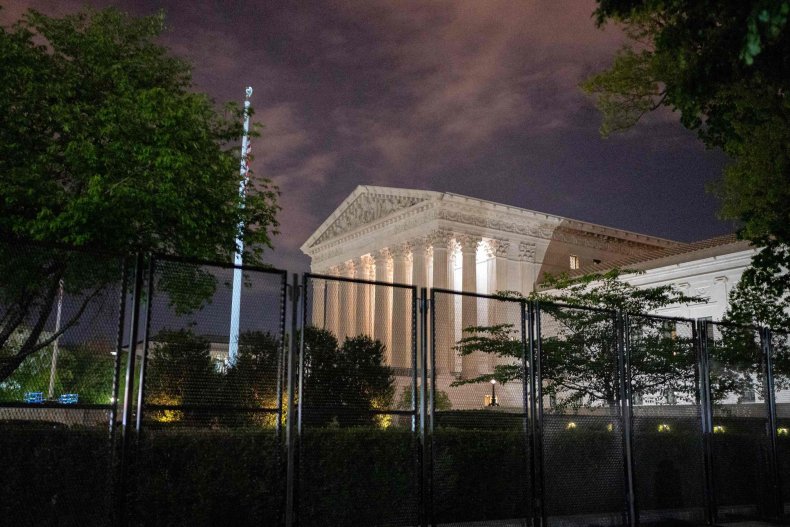Correcting a Grave Constitutional Error
The Supreme Court is on the verge of correcting a grave constitutional mistake. Its decisions in Roe v. Wade (1973) and Planned Parenthood v. Casey(1992), creating and upholding a "right" to abortion, were not only wrongly decided but are so deeply flawed that the cost of keeping them far outweighs any benefit.
The leaked draft opinion in Dobbs v. Jackson Women's Health Organizationexplaining why Roe and Casey must be overruled proves the point. Abortion advocates want to keep what Roe and Casey created: a national policy of nearly unrestricted abortion that most Americans oppose. But they don't even try to defend those decisions as legitimate interpretations and applications of the Constitution.
The Supreme Court may be part of our system of government, but it does not run the country. Its job is to interpret and apply the law to settle legal disputes. When that law is the Constitution, as Supreme Court nominee Ketanji Brown Jackson explained at her recent confirmation hearing, the Court must discern its "original public meaning" and impartially apply it to the facts of a case.
Roe and Casey fail that test miserably. The Court did not even try to find the meaning, original or otherwise, of the 14th Amendment, where the right to abortion supposedly resides. More than half of Justice Harry Blackmun's majority opinion in Roe is a rambling, error-ridden account of "abortion history," and Blackmun never explained how any of it was relevant to the question of whether the Constitution protects a right to abortion.
Some of the harshest criticism of Roe has come from scholars who actually support abortion rights. Professor John Hart Ely wrote in 1973 that this "very bad" decision "is not constitutional law, and gives almost no sense of an obligation to try to be." Three decades later, Professor Kermit Roosevelt wrote that "Roe is barely coherent. The court pulled its fundamental right to choose more or less from the constitutional ether."
Fifty years of relentless propaganda about "choice" and the "right" to abortion have not budged what Americans believe about the issue. States were already legalizing abortion in difficult cases or crisis situations before Roe was decided. Roe legalized abortions in every other scenario, when a woman simply does not wish to be pregnant.
A large majority of Americans has consistently believed that these abortions, even in early pregnancy, should be illegal. Instead, the Supreme Court forced upon the nation an abortion policy more permissive than nearly any other on Earth—in the name of a Constitution that is silent on the issue.

Sen. Elizabeth Warren (D-Mass.) appeared at an event after the Dobbsopinion leaked, arguing that most Americans do not want the Supreme Court to overrule Roe. By that standard, the Court should never have decided Roe in the first place.
The Roe v. Wade that most Americans today say should be retained simply does not exist. Nearly 40 percent of Americans (and more than 50 percent of those under 30) believe that Roe involves school desegregation or environmental protection, or simply do not know what it is. Many of those who can at least identify the right issue falsely believe that Roelegalized abortion only in the first three months of pregnancy.
A Fox News poll found that while a majority of Americans say that Roeshould not be overturned, a majority also support banning abortion after 15 weeks, a limitation that Roe does not allow. Politico's own poll, conducted after its revelation of the Dobbs draft opinion, found that support for retaining Roe has fallen to just 50 percent.
Others claim that abandoning Roe and Casey will necessarily endanger "rights" to such things as same-sex marriage—perhaps a concession that the Supreme Court also made up those rights. But this argument is not new. The plaintiffs challenging the abortion ban in Roe, for example, argued that the Court should create a right to abortion because it had already created other unwritten rights. The Court rejected the comparison, saying that the presence of the unborn child makes abortion "inherently different" from (and possibly not even related to) other privacy rights.
Now, the pro-abortion argument pushes in the opposite direction, saying that overruling Roe and Casey would endanger those "inherently different" rights. Anticipating this argument, the Dobbs draft opinion repeatedly makes something crystal clear:
To ensure that our decision is not misunderstood or mischaracterized, we emphasize that our decision concerns the constitutional right to abortion and no other right. Nothing in this opinion should be understood to cast doubt on precedents that do not concern abortion.
Ten years after Roe, President Ronald Reagan wrote that the "real question" concerning abortion "is not when human life begins, but, what is the value of human life?" This is and will always be the real question, and neither the Supreme Court nor the Constitution provide the answer. When the Supreme Court corrects this grave constitutional error by removing Roe and Casey as obstacles, the American people and those we elect to represent us will finally be able to answer that question for ourselves.
Thomas Jipping is a senior legal fellow in The Heritage Foundation's Meese Center for Legal and Judicial Studies.
